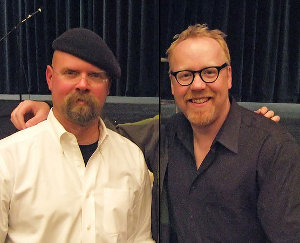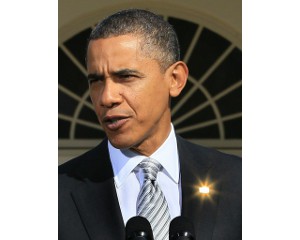
Science has an image problem in this country. In everyday culture, it’s gone from being an arcane art to being a popularity contest. It’s commonplace to see surveys asking people on the street if they believe in evolution or if they believe in global warming—as if somehow science was subject to democratic majorities.
The danger is that much of what people believe about science is shaped by the media. Yet the media is motivated by attracting eyeballs more than conveying the nuances of a topic. Hence, an interesting bit of research by a scientists at Cornell gets turned into the headline:
Scientist proves that humans are psychic
All of which would be fascinating, except that’s not really what happened. The study shows a data correlation that could be explained by people having precognitive abilities, but may have other explanations. After all, science is about understanding why and how something happens, not just that it does. Otherwise a scientist might observe the data correlation that supermarkets are more crowded on Saturdays, then conclude that clearly people are more hungry on the weekend and call it a “proof.” Fortunately, science goes a bit deeper than that. The burden for calling something a scientific proof is actually pretty darn high. But most people don’t really know that. They don’t really understand the scientific process.
Science has been popularized by television shows like Mythbusters where the cool side of applied science usually involves blowing something up. While this has been a great boon for making science more accessible, it also does a disservice by creating the perception that a couple of guys in a well stocked warehouse can scientifically prove something given a few hours and an ample supply of duct tape. While these experiments are great entertainment, they are not scientifically accepted proofs. And this is a distinction lost on many of the viewers.
This issue is not particularly limited to the field of science. Politics often has similar situations such as when popular polls are held asking how to fix the economy, as if the economy will yield to a majority vote. Perhaps the better question is, why are we so keen to take complicated fields, boil them to their essence, and then claim mastery of the discipline?
Part of this problem is based on our slide into the populist ideal where everyone is thought capable of everything. The notion that the only thing distinguishing me from a corporate CEO, a concert pianist, or a Nobel laureate is just that I haven’t yet chosen to apply my considerable talents to that field yet. It’s not that hard, there’s nothing special about people who do that. I could be President. I could be a climate scientist. I could be a rock star. I just haven’t chosen to be. We’ve drunk the Kool-Aid we give our young children in an effort to encourage them and give them self-esteem, and somehow it’s convinced us that nothing is very complicated or outside our grasp.
Maybe the world really is an abstruse place. Maybe experts really do add value. And while it’s great that you’re interested, maybe following along in the news doesn’t quite give your opinion on the matter quite the same weight as professionals working in the field.

